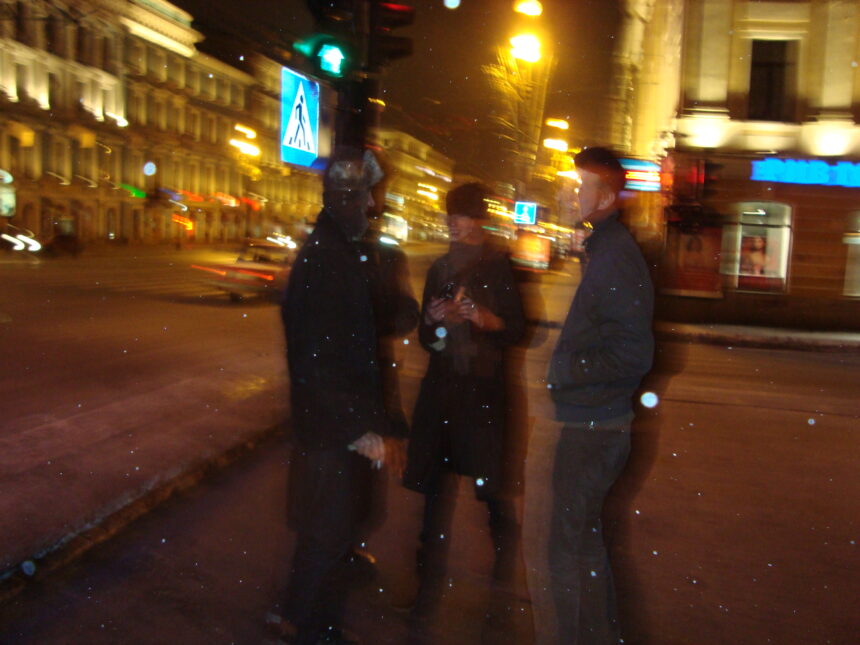The Class War from Nato to NATO
Marc James Léger
In an October 2017 interview with Hrag Vartanian, Nato Thompson, the former Artistic Director of Creative Time and now the Artistic Director of the Philadelphia Contemporary, refers to the “commercial embrace” of social practice art, which he says is neither good nor bad, simply a reality and a sign that “things have certainly changed.” He adds that difficult politics are local and that abstract politics around radical ideas do not hold anyone accountable, and moreover, when speaking of the left, no one knows what they are talking about. Arguing that there are differences between the United States, India and indigenous communities, he says that to speak of internationalism “assumes everyone’s in the Left and also that if you are in the Left, we’re speaking the same language.”[1] Thompson’s localism echoes the words of Barack Obama, who, for an altogether different set of reasons, and in response to the 2009 G20 protests in Pittsburgh, stated: “focusing on concrete, local, immediate issues that have an impact on people’s lives is what really makes a difference and […] having protests about abstractions [like] global capitalism […] is not really going to make a difference.”[2] Are today’s socially engaged activists more accountable or more qualified to deal with social problems than elected officials? Given that we are now dealing with a corporate-backed kakistocracy – rule by the incompetent and unscrupulous – the answer seems to be yes.
As far as the left is concerned, and in addition to the differences between anarchists, communists and social democrats, not to mention “end of ideology” postmodernists who are beyond meta-narratives, Slavoj Žižek draws the pessimistic conclusion that today’s left is unable to offer an alternative to global capitalism. If nothing new or revolutionary can emerge from capitalism’s compulsive self-overcoming, he argues, then radical politics is left with the following options: 1) accept the ultimate triumph of capitalism and fight for social democratic emancipation within its rules; 2) accept this framework but resist it at the level of its interstices; 3) accept the futility of resistance and wait patiently for outbursts of violence that can shake the system; 4) defend what remains of the welfare state and withdraw into cultural studies; 5) limit the problems of capitalism to questions of technology and instrumental reason; 6) focus on everyday practices of subversion rather than tackle capitalism and state power; 7) shift from anti-capitalism to struggles for hegemony as a process of discursive rearticulation; 8) shift the analysis of capitalism from Fordism to post-Fordist immaterial labor, thereby emphasizing the conflict between the relations and forces of production.[3] Socially engaged art, one might argue, corresponds to most of these options.
The debate between reformist and revolutionary politics – or whatever concepts one might prefer in a more specific discussion – was addressed in FIELD editor Grant Kester’s reply to Mikkel Bolt Rasmussen’s critique of the “non-ideological” and “consensus-based” art of modest gestures (relational aesthetics, institutional critique, tactical media, participatory art and community art), in which Kester argues against rhetorical effects that presume a priori knowledge of a situation and in favor of pragmatic projects that test political theory through practice.[4] Although Rasmussen tends to reject the vanguardist stance in favor of a historical materialist emphasis on the determinations of socio-economic realities, and although Kester rejects vanguardism as an “intellectual Baroque” that exaggerates problems and presumes to speak for others, it is possible to conceive of a vanguard practice that renews class struggle as part of a collective cultural process.[5] The British collective Class Wargames has since 2007 proposed that anyone can become a Situationist by playing Guy Debord’s Game of War.[6] Through participatory events that are focused on playing Debord’s Napoleonic kriegspiel, Class Wargames address the historicity of the revolutionary tradition while at the same time questioning vanguardism for present-day social movements and leftist parties, an instance of what John Roberts refers to as an “avant-garde research programme.”[7] Class Wargames consider the Game of War to be a “ludic manifestation of the class struggle.”[8] By playing the Game of War, cybernetic communist gamers learn how to be theoreticians of proletarian self-emancipation. “There can be no masters and slaves among comrades,” they say.[9] As a lesson in tactics and strategy, Class Wargames’ engaged art practice is anti-anti-military in the finest proletarian sense. Leadership and programme are substituted for convivial combat, which encourages gamers to become Situationists in their own right by deepening proletarian consciousness.
Addressing the conditions of actually existing warfare, Class Wargames bring into view the way in which the Joint Chiefs of Staff of the United States Department of Defense consider that future conflicts will involve not only traditional state actors, but transnational networks of sub-state groups, whose definition ranges from terrorists and extremist organizations to protesters and activists.[10] Since artists are embedded in protest groups, critical artists would therefore represent some of the constituents of this enemy network, as seen from the point of view of “national security.” It is accurate, in this respect, to refer to social movement actors as for example the Disrupt J20 protesters as vanguard militants. Through the Game of War, Class Wargames addresses the imbrication of network technologies with war games, a “cybernetic ritualization of the Cold War” that Richard Barbrook argues is the other side of “cybernetic emancipation.”[11] The Cold War now figures prominently as the United States, the European nations and NATO allies have determined that the so-called War on Terror has now been replaced with Great Power conflict, with Russia and China as the major threats and with North Korea and Iran as preliminary targets. Donald Trump’s speech at the United Nations on September 19, 2017, warned that U.S. Army generals are “ready, willing and able” to “totally destroy” North Korea and its inhabitants. More locally, for me, the Canadian state for the most part acquiesces to American foreign policy and NATO directives, with involvement in imperialist “regime change” wars in Haiti, Venezuela, Honduras, Afghanistan, Iraq, Libya, Syria, Ukraine and Mali. In 2017 all three federal political parties agreed to NATO demands to double Canadian military spending, legislating the construction of new warships, fighter jets and armed drones. The Canadian state has joined in on recent war threats against Russia, China and North Korea. It has also used its intelligence and security apparatus to devise anti-terrorism legislation that criminalizes working-class and political dissent.
The ongoing climate change and destruction of the natural world threatens all of humanity as population growth and over-consumption is leading to a sixth mass extinction. If in her essay “On Games,” Hito Steyerl calls on artists to start thinking about gaming a not yet existent reality into being, one could do worse than play the Game of War.[12]

Marc James Léger is an independent scholar living in Montreal. He edited Culture and Contestation in the New Century (2011) and The Idea of the Avant Garde – And What It Means Today (2014). A second volume of The Idea of the Avant Garde is forthcoming in 2019. He is co-writer of Millet Matrix: Contemporary Art, Collaboration, Curatorial Praxis (2015) and co-editor of Zapantera Negra: An Artistic Encounter Between Black Panthers and Zapatistas. His books include Brave New Avant Garde (2012), The Neoliberal Undead (2013), Drive in Cinema: Essays on Film, Theory and Politics (2015), Don’t Network: The Avant Garde after Networks (2018) and Vanguardia: Socially Engaged Art and Theory (2019).
Notes:
[1] See Hrag Vartanian, “Curator Nato Thonpson on Politics and the State of Social Practice Art,” Hyperallergic, October 25, 2017, https://hyperallergic.com/407599/curator-nato-thompson-on-politics-and-the-state-of-social-practice-art/. For a discussion of Thompson’s thoughts on social practice art, see Nato Thompson, Seeing Power: Art and Activism in the 21st Century (Brooklyn: Melville House, 2015).
[2] See “Obama: G-20 Protests Too Abstract To Make A Difference,” Huffingtonpost.com, November 21, 2009, https://www.huffingtonpost.com/2009/09/21/obama-calls-g-20-protests_n_293620.html. See also Greg Sharzer, No Local: Why Small-Scale Alternatives Won’t Change the World (Winchester: Zero Books, 2012).
[3] Slavoj Žižek, In Defense of Lost Causes (London: Verso, 2008), p. 337-338.
[4] See Mikkel Bolt Rasmussen, “A Note on Socially Engaged Art Criticism,” FIELD: A Journal of Socially Engaged Art Criticism 6 (Winter 2017): http://field-journal.com/stagejanV2/issue-6/a-note-on-socially-engaged-art-criticism; Grant Kester, “The Limitations of the Exculpatory Critique: A Response to Mikkel Bolt Rasmussen,” FIELD: A Journal of Socially Engaged Art Criticism 6 (Winter 2017): http://field-journal.com/stagejanV2/issue-6/mikkel-bolt-rasmussen.
[5] See for example, Grant Kester, The One and the Many: Contemporary Collaborative Art in a Global Context (Durham: Duke University Press, 2011); Mikkel Bolt Rasmussen, Crisis to Insurrection: Notes on the Ongoing Collapse (Minor Compositions, Brooklyn, 2015); Marc James Léger, Drive in Cinema: Essays on Film, Theory and Politics (Bristol: Intellect, 2015).
[6] See the Class Wargames website http://www.classwargames.net. See also: Alice Becker-Ho and Guy Debord, A Game of War, trans. Donald Nicholson-Smith (London: Atlas Press, [1987/2006] 2007); Sven Lütticken, “Guy Debord and Cultural Revolution,” Grey Room 52 (Summer 2013): 108-27; Richard Barbrook, Class Wargames: Ludic Subversion Against Spectacular Capitalism (Wivenhoe: Minor Compositions, 2014).
[7] John Roberts, Revolutionary Time and the Avant-Garde (London: Verso, 2015), p. 15.
[8] Richard Barbrook and Fabian Tompsett, Class Wargames Presents Guy Debord’s The Game of War (the extended film script) (London: Unpopular Books, 2012), pp. 13, 15.
[9] Barbrook and Tompsett, Class Wargames Presents Guy Debord’s The Game of War, 25.
[10] Joint Chiefs of Staff, The National Military Strategy of the United States of America (The United States’ Military Contribution to National Security, June 2015, available at http://www.jcs.mil/Portals/36/Documents/Publications/National_Military_Strategy_2015.pdf.
[11] Richard Barbrook and Petar Jandrić, “How To Be Modern: A Situationist Social Democrat’s Adventures in Radio, Gaming and the Internet,” Institute of Network Cultures, April 4, 2016, pp. 17-8, http://networkcultures.org/blog/2016/04/04/how-to-be-modern-a-situationist-social-democrats-adventures-in-radio-gaming-and-the-internet/
[12] Hito Steyerl, “On Games, Or, Can Art Workers Think?” New Left Review #103 (January/February 2017), p. 116.











